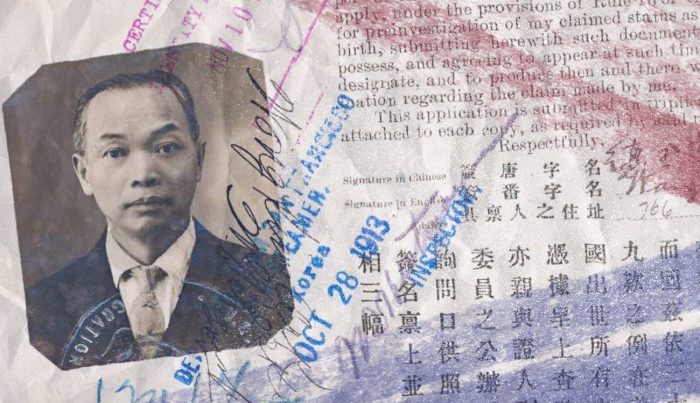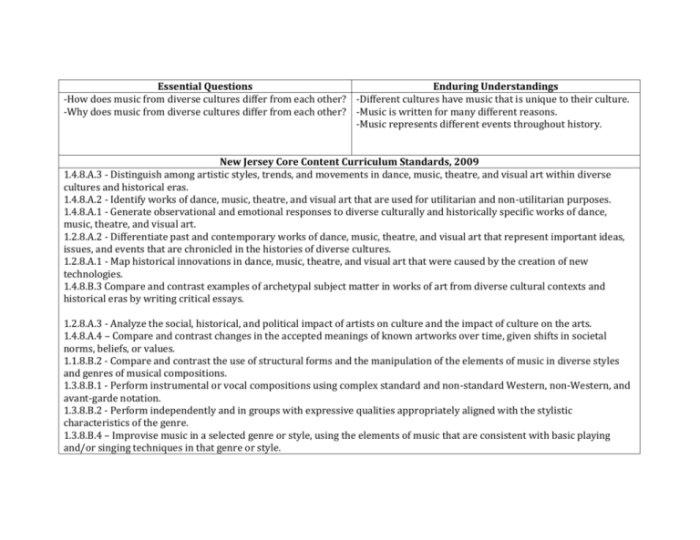Introducing the fascinating world of unit 26 quiz culture tidbit, where knowledge and trivia intertwine to create a vibrant and engaging community. This unique form of quizzing has gained immense popularity, leaving an undeniable mark on its participants and the broader cultural landscape.
From its origins and evolution to its methods of sharing and impact, we delve into the captivating world of unit 26 quiz culture tidbit, uncovering its significance and exploring its future trends.
Definition and Significance

Unit 26 quiz culture tidbits refer to a specific type of trivia or obscure knowledge that is shared within a particular community or group. These tidbits often relate to a shared interest or hobby, and they serve to foster a sense of belonging and camaraderie among members.
For example, within the community of avid readers, a unit 26 quiz culture tidbit might be the knowledge that the first edition of “The Catcher in the Rye” contained a typographical error in which the word “fuck” was misspelled as “fk.”
This seemingly insignificant piece of information holds significance within the community as it demonstrates a deep knowledge of the book and its history.
Origins and Evolution
The origins of unit 26 quiz culture tidbits can be traced back to the early days of quizzing in the United States. In the 19th century, quizzing was a popular pastime, and newspapers and magazines often published quizzes to entertain their readers.
These quizzes often included obscure facts and trivia, and they were a way for people to test their knowledge and show off their intelligence.
Over time, quizzing evolved and became more formalized. In the 20th century, quiz bowls and other competitive quizzing events became popular. These events featured teams of quizzers who competed against each other to answer questions on a wide range of topics.
Unit 26 quiz culture tidbits became a staple of these events, as they were a way to stump even the most knowledgeable quizzers.
The Internet Age
The advent of the internet in the late 20th century had a major impact on the evolution of unit 26 quiz culture tidbits. Online quizzes and trivia games became popular, and these platforms provided a new way for people to test their knowledge and share their trivia with others.
Today, unit 26 quiz culture tidbits are still a popular way to test your knowledge and learn new things. They are found in a variety of formats, including online quizzes, trivia games, and even books. They continue to be a fun and challenging way to expand your knowledge and impress your friends with your trivia prowess.
Methods of Sharing and Dissemination

The proliferation of unit 26 quiz culture tidbits is facilitated by a diverse range of dissemination methods. These channels encompass social media platforms, online forums dedicated to quizzing, and physical gatherings where quiz enthusiasts congregate.
Social media platforms, with their vast user bases and interactive features, serve as potent vehicles for sharing quiz tidbits. Platforms like Twitter, Facebook, and Instagram enable users to post, share, and comment on tidbits, fostering a sense of community and facilitating rapid dissemination.
Online forums, such as Reddit and Quizbowl Forums, provide dedicated spaces for quiz enthusiasts to engage in discussions, exchange tidbits, and test their knowledge.
Role of Technology
Technology plays a pivotal role in the dissemination of unit 26 quiz culture tidbits. Social media platforms and online forums leverage the internet’s global reach to connect quiz enthusiasts across geographical boundaries, fostering a sense of community and shared interest.
Additionally, mobile devices and smartphones enable users to access quiz tidbits and engage in discussions on the go, further enhancing the accessibility and convenience of these dissemination channels.
Impact and Influence

Unit 26 quiz culture tidbits have a profound impact on the community or group, fostering a sense of belonging, promoting intellectual curiosity, and contributing to cultural knowledge.
Fostering a Sense of Belonging
These tidbits provide a shared experience for members of the community, creating a common ground and a sense of connection. By engaging in discussions and sharing knowledge about the tidbits, individuals feel a sense of belonging to a group with similar interests and values.
Promoting Intellectual Curiosity
The tidbits often present intriguing facts or insights that spark curiosity and encourage further exploration. They stimulate questions, promote critical thinking, and inspire individuals to seek additional knowledge beyond the immediate context of the tidbit.
Contributing to Cultural Knowledge
Unit 26 quiz culture tidbits contribute to the preservation and dissemination of cultural knowledge. They may highlight historical events, traditional practices, or cultural nuances that might otherwise be forgotten or overlooked. By sharing these tidbits, individuals play a role in transmitting and enriching the cultural heritage of their community.
Comparison to Other Forms of Trivia: Unit 26 Quiz Culture Tidbit
Unit 26 quiz culture tidbits share similarities with other forms of trivia, such as pub quizzes and game shows. However, they also possess unique characteristics and appeal that distinguish them.
Commonalities with Other Trivia Forms
Unit 26 quiz culture tidbits, like other trivia forms, involve testing participants’ knowledge on a wide range of topics. They often feature questions that are designed to be challenging and require a deep understanding of the subject matter. Additionally, they often incorporate elements of competition and social interaction, encouraging participants to engage with each other and showcase their trivia skills.
Unique Characteristics of Unit 26 Quiz Culture Tidbits
Despite these commonalities, unit 26 quiz culture tidbits stand out due to several unique characteristics. First, they typically focus on a specific niche or subculture, such as anime, video games, or history. This narrow focus allows for a more in-depth exploration of the topic and encourages participants to develop specialized knowledge.Secondly,
The unit 26 quiz culture tidbit is a great way to test your knowledge of the material. If you’re looking for a more challenging test, check out the ati vital signs post test . It’s a comprehensive test that will help you identify areas where you need to improve.
Once you’ve taken the post test, come back to the unit 26 quiz culture tidbit to review the material and reinforce your learning.
unit 26 quiz culture tidbits are often created and shared by enthusiasts within the community. This participatory nature fosters a sense of ownership and camaraderie among participants, as they contribute to the collective knowledge base.Finally, unit 26 quiz culture tidbits are frequently disseminated through online platforms and social media.
This digital distribution enables them to reach a wider audience and connect with individuals who share similar interests, regardless of geographic location.
Appeal of Unit 26 Quiz Culture Tidbits
The unique characteristics of unit 26 quiz culture tidbits contribute to their appeal among enthusiasts. They offer a platform for individuals to showcase their knowledge, engage with others who share their passions, and delve deeper into their chosen niche. Additionally, the competitive element and social interaction provide a sense of community and camaraderie, further enhancing their appeal.
Examples and Case Studies

Quiz culture tidbits are a diverse and engaging form of trivia that encompasses a wide range of topics and interests. Here are a few notable examples:
- The “Jeopardy!” question: “What is the only mammal that can’t jump?” Answer: Elephant.
- The “Who Wants to Be a Millionaire?” question: “Which planet is known as the ‘Red Planet’?” Answer: Mars.
- The “Trivia Crack” question: “What is the name of the tallest mountain in the world?” Answer: Mount Everest.
These examples demonstrate the breadth of knowledge and the engaging nature of quiz culture tidbits. They cover various subjects, including science, geography, and popular culture, and are designed to challenge and entertain participants.
Case Studies, Unit 26 quiz culture tidbit
Numerous individuals and groups have made significant contributions to quiz culture. One notable example is Ken Jennings, an American quiz show contestant who holds the record for the longest winning streak on “Jeopardy!” with 74 consecutive victories. Jennings’ remarkable knowledge and quick wit have inspired many aspiring quiz enthusiasts.Another
prominent figure in the quiz culture community is James Holzhauer, known for his aggressive and successful strategies on “Jeopardy!” Holzhauer’s unconventional approach and impressive winnings have captivated audiences and brought renewed attention to the show.These case studies highlight the impact of individuals who have excelled in quiz culture and have become influential figures within the community.
Their achievements have raised the profile of quiz culture and inspired others to pursue their passion for trivia.
Future Trends and Developments
The future of unit 26 quiz culture tidbits holds exciting possibilities. Technology and social media will continue to play a significant role in their evolution.
Technological Advancements
Artificial intelligence (AI) will likely enhance the creation and dissemination of tidbits. AI-powered tools can generate personalized content based on user preferences and interests, making the experience more engaging. Additionally, virtual and augmented reality (VR/AR) technologies could create immersive environments for quizzing and trivia-based games.
Social Media Integration
Social media platforms will remain crucial for sharing and discussing tidbits. Live streaming, interactive polls, and community-generated content will foster a sense of community and encourage participation. Social media algorithms will also play a role in recommending relevant tidbits to users based on their online behavior.
Cross-Platform Accessibility
Quiz culture tidbits will become increasingly accessible across multiple platforms. Mobile apps, websites, and social media platforms will offer seamless integration, allowing users to access tidbits anytime, anywhere. This cross-platform accessibility will further expand the reach and impact of quiz culture.
Educational and Informative Value
Quiz culture tidbits will continue to serve as a valuable source of education and information. By presenting trivia in an engaging and accessible format, they can help individuals expand their knowledge, stimulate curiosity, and foster a lifelong love of learning.
Commonly Asked Questions
What is the significance of unit 26 quiz culture tidbit?
Unit 26 quiz culture tidbit plays a vital role in fostering a sense of community, promoting intellectual curiosity, and contributing to the collective knowledge of its participants.
How has unit 26 quiz culture tidbit evolved over time?
Unit 26 quiz culture tidbit has evolved from its origins in specific communities to become a global phenomenon, facilitated by the rise of social media and online platforms.
What are the different methods used to share unit 26 quiz culture tidbit?
Unit 26 quiz culture tidbit is shared through various methods, including social media, online forums, physical gatherings, and dedicated websites.